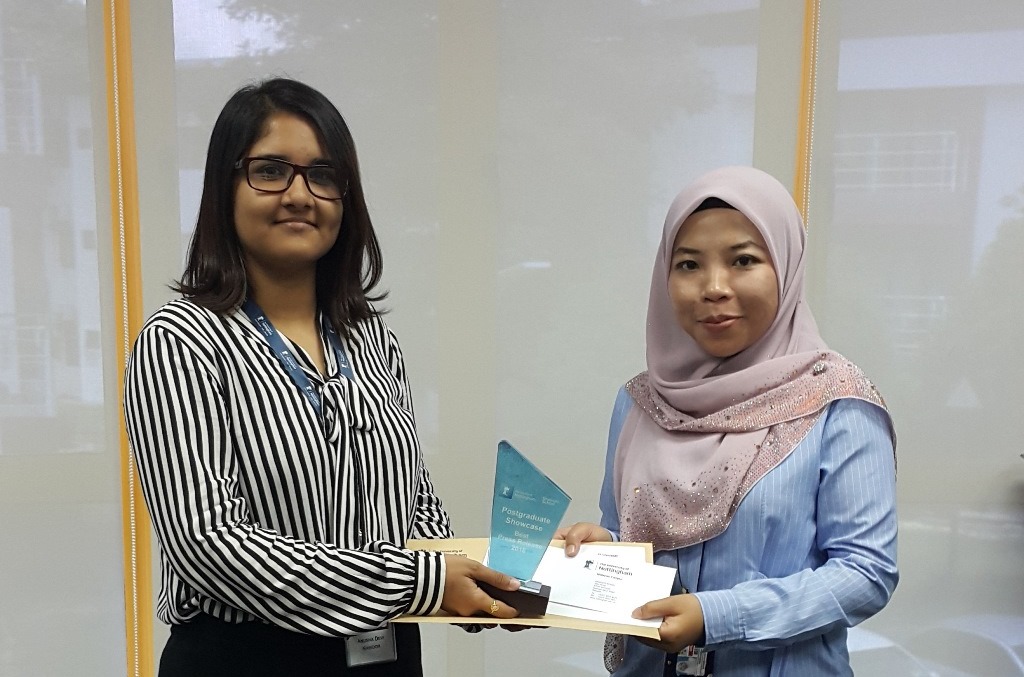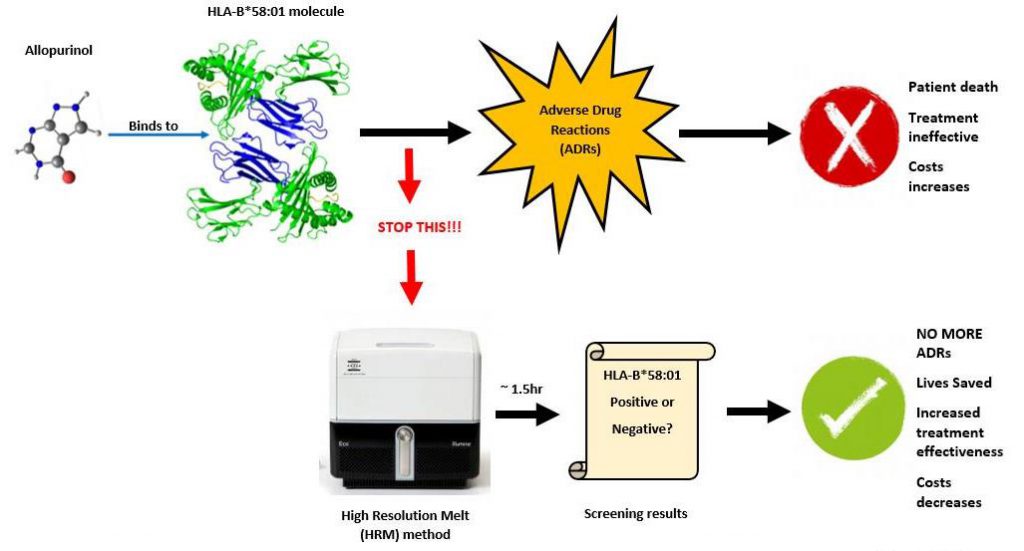
May 22, 2018, by Lisa Chin
Postgraduate Showcase 2018: Best Press Release
Allopurinol treatment for gout patients: No longer a double-edged sword!
Do you know someone who has gout and takes allopurinol? You probably do! Billions of people worldwide have gout, a disease caused by the build-up of uric acid in the bloodstream. The most effective treatment given to patients is allopurinol. Little do people know that this drug is a double-edged sword; it has a high efficiency of lowering the uric acid level but it also causes severe adverse drug reactions (ADRs) and leads to death! So how do we prevent this? Who is at risk?
The answer lies in our genes! This field of study is called pharmacogenomics, where the ADRs are linked to specific genes in our body. The Human Leukocyte Antigen (HLA) genes are responsible for this drug-gene interaction. Screening for specific HLA genes before drug prescription can eradicate these fatal ADRs. The HLA-B*58:01 gene has been linked explicitly to allopurinol-induced ADRs in gout patients.
Genetic screening brings about two reactions in people: expensive and time consuming! What if we can challenge this? The High Resolution Melt (HRM) method we developed can generate results in a few hours and costs around RM5 per sample. Better yet, this method was implemented in a machine that does all the work: you just need to give your blood or saliva and get the screening results in a few hours. As simple as that!
Our goal (figure 1) is to give the right drug to the right patient, at the right time.
For more information, please contact Anusha Devi Nawoor, Department of Biomedical Sciences, University of Nottingham Malaysia.
Anusha Devi Nawoor was announced the winner of the Best press Release Award at the Postgraduate Showcase held on 3 May 2018. More information is available here.
Further information about the Postgraduate Showcase is available here.
Featured image: Anusha Devi Nawoor (left) received the Best Press Release Award from Dr Nurul Huda Abdul Karim, Senior Lecturer of Inorganic Chemistry at the National University of Malaysia (UKM).
-
Post a comment

